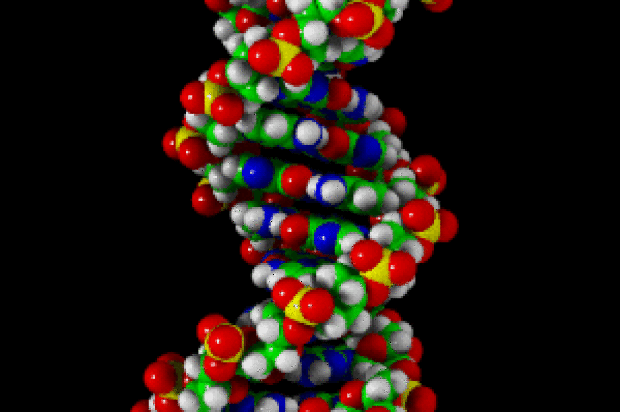
Federal prosecutors are DNA swabbing at least 12 of the 28 defendants entangled in the FBI’s probe into political corruption and organized crime that ensnared former state senator Leland Yee, and Raymond “Shrimp Boy” Chow, among others.
The process is straightforward, as described by Chow to the Appeal. In his case two federal agents, met with him and his attorney Curtis Briggs in one of the attorney visiting rooms at 850 Bryant, one of the city’s jails. The agents used a little stick with a fuzzy end to swab inside his mouth, along his gums on the right side of his mouth, and then the second agent used another stick to repeat the process on the left side.
“That was for verification or something,” Chow said. The whole thing took just a few minutes.
It’s unclear why exactly the feds need to do so a year later. Normally, when suspects in a federal case are processed by the US Marshals it’s standard procedure to gather a DNA sample, as well as photographs and fingerprints, according to a Justice Department memo. And that DNA evidence is entered into a federal database, which stores such records indefinitely.
Chow said he was not DNA swabbed when arrested last year.
The official justification the FBI gave federal magistrate Charles Breyer has to do with tying several of the defendants — Chow, George Nieh, and James Pau — to the various firearms seized by the government last year during the raids it conducted in March, according to a court filing by Chow’s lawyers. Specifically, one .22 caliber firearm, that was stored at Pau’s apartment, which Chow frequented.
“Like many aspects of this prosecution, ordering DNA swabs a year after arrest is symptomatic of a federal investigatory machine that has completely broken down,” one of Chow’s attorneys, Curtis Briggs wrote in an email message to The Appeal.
“They either lost DNA samples or they failed to obey a basic mandate from the Attorney General by neglecting to retrieve DNA samples from one of the largest indictments in San Francisco history.”
Chow himself talked eagerly of getting the results back, and claimed that such testing will simply exonerate him. “I hope they check the [laundered] money for the DNA,” he said. “None of my [DNA] will be on the money.”
In the court filing, Briggs suggested that the need to re-sample DNA, indicates “serious FBI crime lab malfeasance” and that additional DNA testing would unduly prolong his client’s case, and push back the trial date — which has not yet been set.
The US Attorney’s office declined to comment on the matter.
The feds desire to re-DNA swab the defendants comes in the wake of the scandalous revelation that an SFPD criminalist and a supervisor were improperly handling DNA evidence. The “irregularities” may affect more than 1,400 cases stretching over several years.
But, the cops say that they have nothing to do with the DNA evidence in the Chow case. “We have nothing to do with that,” said spokesman, officer Albie Esparza.
The feds themselves have had a problem with certain kinds of DNA testing — hair analysis — which surfaced in a report made public earlier this month.
Chow, Yee and 27 other defendants — now 26, after dentist Wilson Lim died of congestive heart failure, among other health problems — were arrested on March 26, 2014 on an array of charges that include money laundering, and public corruption.
Although initially prosecuted as a single case, the judge Breyer has indicated there are two distinct, and unrelated racketeering conspiracies: One surrounding Chow and other members of the Chinese benevolent society the Ghee Kung Tong, and the other involving political consultant Keith Jackson and the former state senator, Yee.
Chow, 55, is the chairman of the Ghee Kung Tong.
The investigation of the 28 defendants began at least as early as 2010 by a number of undercover agents, including one who posed as a Mafia member and allegedly infiltrated the Ghee Kung Tong, according to an FBI affidavit filed in the case last March.
The purportedly stolen liquor and cigarettes that Chow and others are accused of conspiring to traffic was supplied by that agent and undercover agents, the affidavit said.
Yee, 66, a Democrat, formerly represented the western half of San Francisco and most of San Mateo County in the state Senate.
He and Jackson, a former San Francisco school board president, will be tried in August on charges of conspiring to racketeer by soliciting campaign contributions in exchange for political favors, defrauding citizens of his honest services, conspiring to launder money and conspiring in a never-completed deal to smuggle weapons from the Philippines.
Jackson, his son Brandon Jackson, and sports agent Marlon Sullivan will also be tried with Yee on charges of selling guns without a license.
No one has yet gone to trial in the massive conspiracy and racketeering indictment as federal prosecutors continue to turn over voluminous evidence to dozens of defense attorneys in the case. At the moment the first group of defendants — Yee, Jackson, and several others — is set to be tried in August.
There is no trial date for Chow, and the 16 co-defendants charged in that racketeering conspiracy. Jackson is the only man accused of participating in both.









